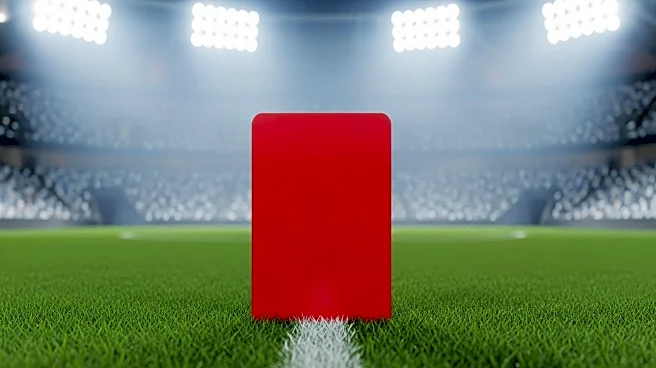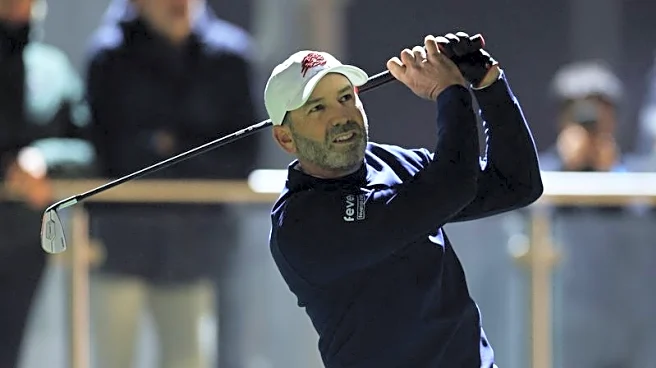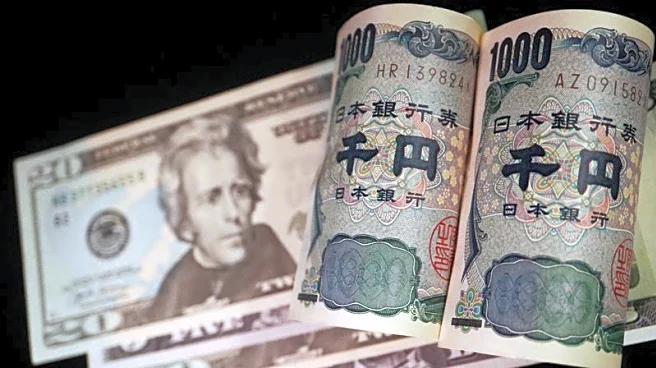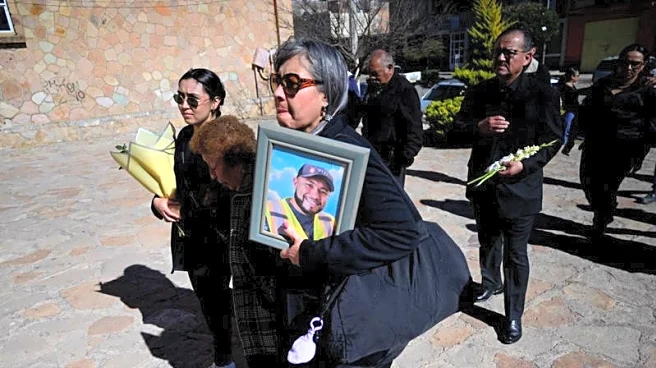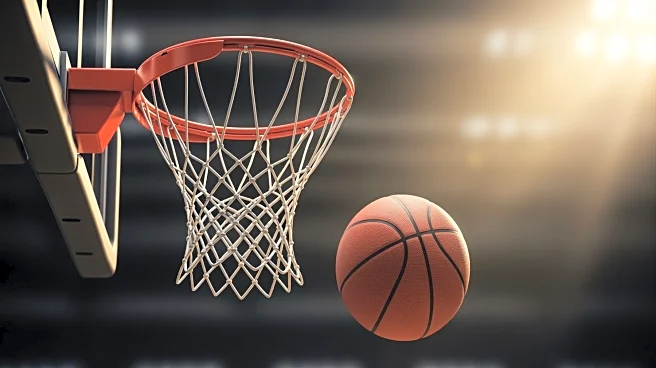What's Happening?
Nicolás Otamendi, a key defender for Argentina, will miss the opening match of the upcoming World Cup due to a suspension. Otamendi received a red card during a qualifying match against Ecuador, which was the final round of the competition. The foul committed by Otamendi stopped a clear goal-scoring opportunity, leading to his expulsion from the game. As a result, he will serve his suspension during Argentina's first World Cup match. Otamendi has been a consistent starter for Argentina, playing a significant role in their 2022 World Cup-winning campaign and maintaining his position throughout the 2026 qualifiers. The World Cup group stage draw, which will determine Argentina's opponent for their debut match, is scheduled for December 5.
Why It's Important?
Otamendi's absence in the World Cup opener is a significant blow to Argentina's defense, as he has been a pivotal player in their recent successes. His suspension could impact Argentina's performance in the early stages of the tournament, potentially affecting their chances of advancing. The decision also highlights the importance of discipline in high-stakes matches, as even experienced players can face consequences for infractions. This development may prompt Argentina to reassess their defensive strategies and consider alternative options to fill the gap left by Otamendi.
What's Next?
Argentina will need to strategize for their World Cup opener without Otamendi, possibly adjusting their defensive lineup to compensate for his absence. The team may explore other defensive options or rely on less experienced players to step up. The upcoming group stage draw on December 5 will reveal Argentina's opponent, allowing the team to tailor their preparations accordingly. Additionally, the suspension serves as a reminder for players to maintain discipline, especially in crucial matches leading up to the World Cup.
Beyond the Headlines
Otamendi's suspension underscores the broader implications of player conduct and discipline in international football. It raises questions about how teams manage player behavior and the potential impact of suspensions on team dynamics and performance. The incident also highlights the role of referees in enforcing rules and maintaining fair play, which can significantly influence the outcome of matches and tournaments.
